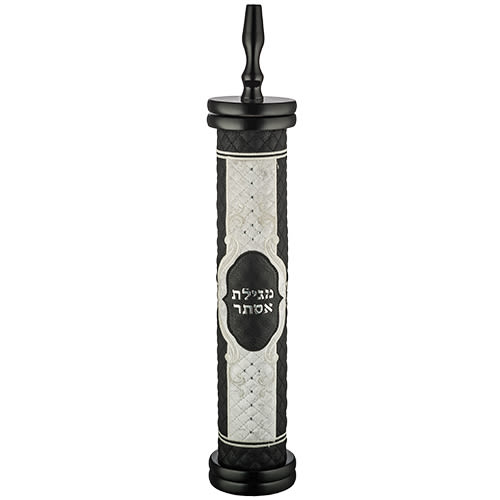
Tzav: Confessing to God
Our sages teach us that in the absence of the holy Temple, prayer serves act as a substitute for ritual sacrifices. As such, the principles...

"This is the teaching of the guilt offering; it is most holy" (Vayikra 7:13).
Our sages teach us that in the absence of the holy Temple, prayer serves act as a substitute for ritual sacrifices. As such, the principles of the sacrifices apply to prayer is well. Without the holy Temple, we can't perform the guilt offering; but, in lieu of the ritual sacrifice, our sages teach that we can confess our transgressions to God and repent. The cogent combination of confession, personal prayer, and repentance not only assumes the spiritual potency of a sacrifice in the holy Temple, it is also considered "most holy" just like a guilt offering. The following parable will explain why:
Before a royal banquet, two of the King's servants were commanded to clean and shine the King's magnificent but extremely delicate crystal goblets. Each servant received six of the priceless goblets with a stern warning to exercise supreme caution in performing their royal assignment.
The two returned to their work stations adjacent to the royal kitchen and began to clean the goblets. The first servant, easily sidetracked by a chambermaid's chatter, carelessly hit one of the goblets with his elbow and knocked it off the table. The delicate crystal plummeted to the floor, shattering in smithereens. The servant paled, yet promptly regained composure, grabbed a broom, swept up the shattered particles, and disposed of the evidence.
The second servant executed his duties so painstakingly, that beads of perspiration appeared on his forehead as he gently wiped and polished the crystal goblets. He cleaned them with utmost care and with complete concentration. He wrapped five of the finished goblets in their blue velvet casings. He reached for the sixth, but it slipped out of his hand and crashed on the floor. The servant's heart skipped a beat; his pulse pounded in his throat. His eyes filled with tears. With no delay, he ran to the King.
The second servant threw himself before the King's feet: "Your Majesty," he cried, "I broke one of your magnificent goblets. I'm so miserable! Please, Your Majesty, accept three years of my wages as payment for the goblet! I am willing to bear whatever punishment you think I deserve. I'm so v-very s-s-sorry." The servant sobbed so hard that he could no longer speak.
The benevolent and merciful King extended his scepter to his loyal servant, indicating that he should rise.
"Dear servant," smiled the King, "Your heartfelt confession is dearer to me than a thousand crystal goblets. You shall not be punished; on the contrary, from this day on, you shall no longer serve as a kitchen servant. I am elevating you to the task of royal waiter!"
Nothing in the palace escaped the King's attention. He knew full well of the first servant's mishap, and patiently waited for him to come and confess. Hours transpired, but the first servant failed to appear before the King. The King summoned two brawny palace guardsmen, and instructed them to bring the servant before him in ball and chains.
The first servant was brazenly adamant: "Your Majesty, why am I treated like a criminal?"
The King asked for the six goblets. The servant produced only five. When the King inquired about the sixth, the servant shrugged, claiming ignorance as to the goblet's whereabouts and denying that he did anything wrong.
"Not only do you fail to confess to me," said the King, "but in your utter foolishness, you deny your guilt. I am always prepared to forgive negligence, even willful negligence, but I cannot forgive dishonesty. Your distance from the truth renders you a criminal, unfit to serve in the palace!" The servant was cast away in exile, never heard from again.
* * *
Reb Natan of Breslev writes (Likutei Halachot, O"H, Hilchot Kriat Shma 2:1), "A person's confession of wrongdoing is so very dear before God, especially since confession means admitting to the truth." Truth is the epitome of holiness. Not only does God waive the punishment for confessed wrongdoing, He consoles the confessor. The exact opposite holds true of the liar that attempts to conceal his transgressions.
In light of Reb Nosson's principle, we can readily understand how the second servant's candid, sincere, and immediate confession invoked the King's mercy and compassion to the point where the servant was promoted rather than punished. Woe to the lying first servant who tried to conceal his wrongdoing. Clearly, the King symbolizes God, and all of us are his servants.
Since confession is tantamount to an asham, or guilt offering, it too is "most holy" in the eyes of The King of Kings, God blessed be His holy name. By confessing our sins daily during hitbodedut, personal prayer before God, we invoke the divine compassion of our loving Father in heaven, thus hastening the day when we shall return to our rebuilt holy Temple in Jerusalem and perform the sacrifices as of old, amen.










Tell us what you think!
Thank you for your comment!
It will be published after approval by the Editor.